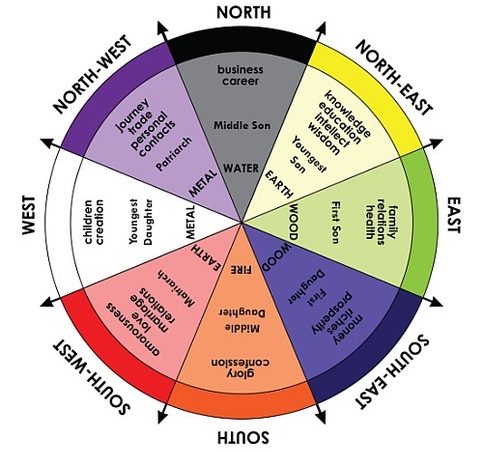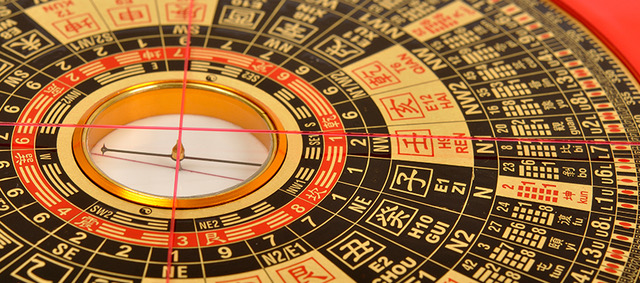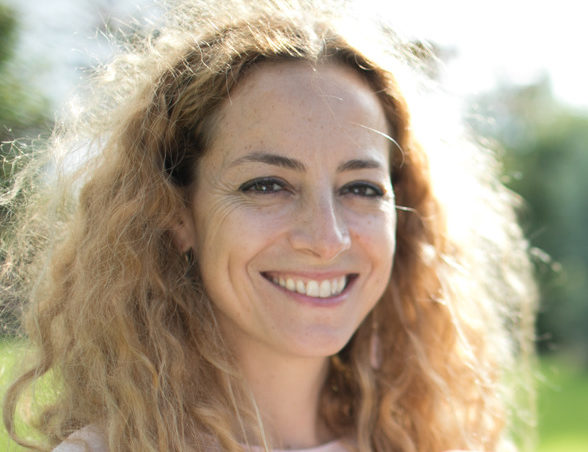
Hello Alexandra, it’s great to have you here in our studio! Thank you for coming. For the benefit of our clients, many of whom won’t be very familiar with the art of Feng Shui, could you please start off by explaining to us what it is?
Thank you for giving me the opportunity to present Feng Shui under a factual light! Feng Shui has been in use for thousands of years in China and has been considered as a metaphysical science. Its methodology is based on the principles of Yin and Yang, the Five Elements (Metal, Fire, Water, Earth and Wood) and the use of direction to tap into Qi, which is the energy found in our environment. In Feng Shui practice, the use of cures is restricted and always related to the Five Elements. The objective is to use the Qi to the benefit of the occupant of a place, through alignment, changing directions or making use of the strategic positioning of his/her house or office or room, or bed, or desk. Feng Shui is about using space and land, making use of what is natural and what is readily available from one’s environment.
Why do you believe Feng Shui works? Did you have a personal experience that brought you to it?
I have been working in the energy and healing field for about 15 years, and before I came across Feng Shui, I always had a sense of where auspicious versus inauspicious energy was dwelling. I embarked on a few housing projects many years ago and on one occasion, I was arguing about the location of the master bedroom with my architect and my husband. I was arguing that the preferred location didn’t hold the right energy; but good luck convincing someone on a hunch especially when it involves a decent amount of money! So I hired a Feng Shui consultant who fortunately came up with the same recommendation as I did. In the end, we followed the consultant’s advice. After we sold our flat, the new buyers renovated the flat and located the master bedroom in the undesired location. A few years later they divorced and sold the flat! Now that I am a trained and certified consultant, I use Feng Shui as a tool to identify, locate and quantify natural energy not only for homes or offices but also for the people living in these environments and how to attract the prosperous Qi towards them. In a nutshell, we could say that Feng Shui is Acupuncture for the house.
Is it necessary for the people living in a Feng Shui house to believe in its benefits?
First, a Feng Shui-friendly house should be revered by its natural habitat. That means, for instance, that the house is not facing a busy highway, or located at a T-junction, that there are no sharp elements facing it or other unwanted conditions affecting it; these observations are the first steps to a harmonious and Feng Shui friendly environment and conducive to benefit the occupants’ fortunes. If people live in a Feng Shui-designed house, they should only believe in its benefits after experiencing positive events or shifts in their lives.

What is the process if someone would like to ‘Feng Shui’ their house?
The client should hire a certified Feng Shui consultant who will collect information such as the floor plans of the house, compass directions, date the residents moved in or house was built; the Feng Shui expert will in turn insure that the consultation is confidential. At the end of the consultation, the client will be given an assessment of the site and its potential for wealth, health, relationships, career, and success. The property will also be rated for its compatibility with the client. Sectors in the property each representing aspects of life such as career and relationships will be evaluated for its relative potential. The consultant will also make general recommendations as to the preferred colours, shapes, and objects in the space, with specific recommendations as to their location and position.
Also read: What happens during a Feng Shui consultation?
Are there updates one has to do after a certain period of time?
Results can be expected within several days to several weeks. It is important to keep in touch with the consultant, particularly if changes are slow in coming or if changes become too swift. It is recommended to do a space clearing prior to implementing the Feng Shui cures/actions. Moreover, annual follow-ups are important to make as the main energies change every February according to the Chinese Calendar.
Do you have any specific advice for interior designers who want to consider Feng Shui as part of their design? At what point in the design process should they or the client involve a Feng Shui expert?
Interior designers could bring a wonderful Feng Shui note to a home or office by incorporating colour themes or design that symbolises the element in each sector, and also ideal furniture positioning. All these elements can create a peaceful and vibrant environment to live in and cherish! The Feng Shui consultant can be involved from the start of a design project to give an opinion on the most auspicious areas for the occupants to spend in. For example, if the “good luck areas” of the home are taken by bathrooms and closets, certainly I would advise to replace these areas with the bedroom and study room. The point being, the occupants should tap into the Qi energy and benefit from the auspicious areas as long and often as possible.
I hope you have enjoyed this introduction to Feng Shui. You might also want to download our free Guide to Feng Shui.

